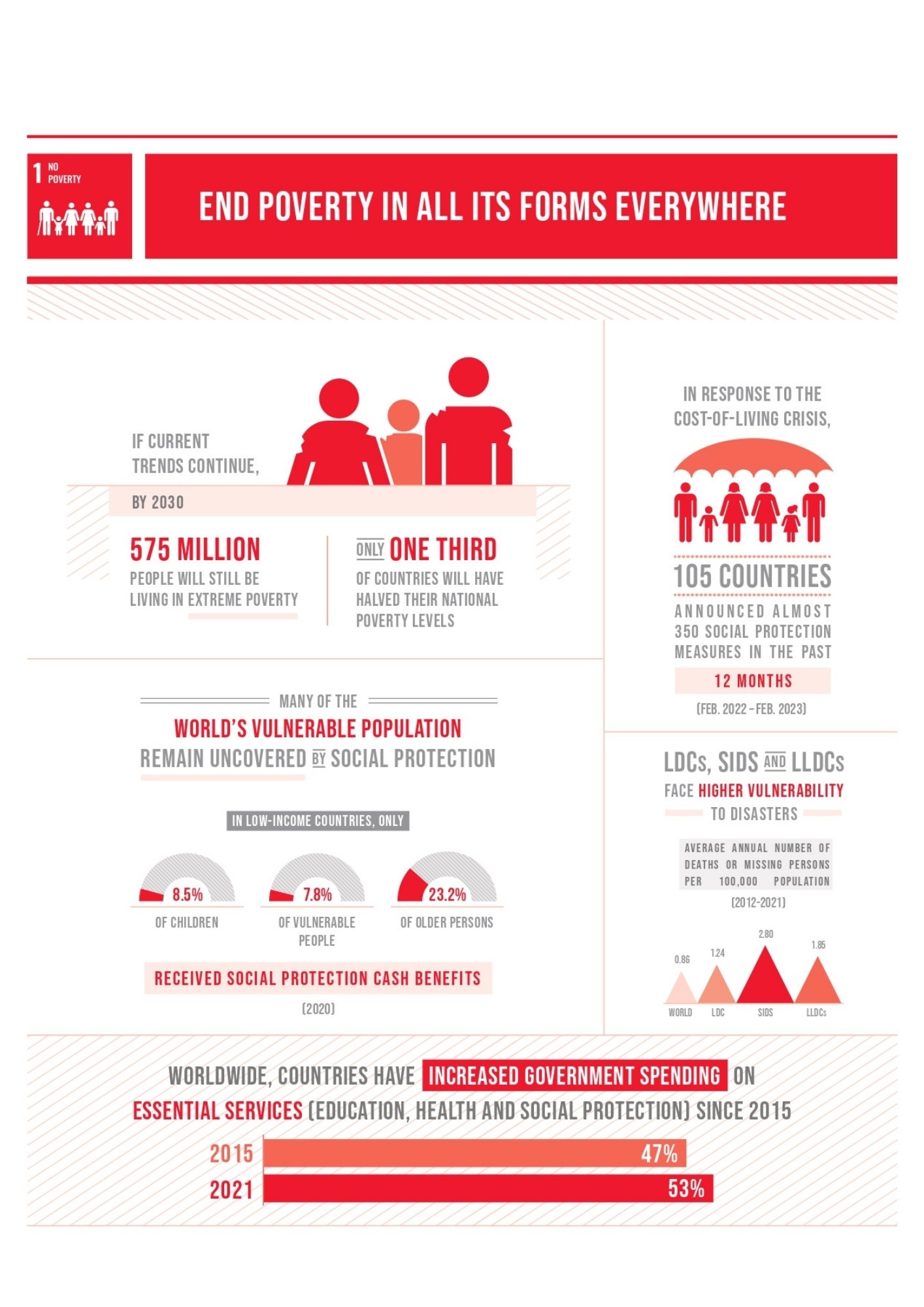
Key Aims
- By 2030, eradicate extreme poverty for all people everywhere, currently measured as people living on less than $1.25 a day
- Reduce at least by half the proportion of men, women and children of all ages living in poverty in all its dimensions according to national definitions
- By 2030, ensure that all men and women, in particular the poor and the vulnerable, have equal rights to economic resources, including microfinance
- By 2030, build the resilience of the poor and those in vulnerable situations and reduce their exposure and vulnerability to climate-related extreme events and other economic, social and environmental shocks and disasters
How Just a Drop Impacts
With clean water, communities can begin to lift themselves out of poverty and build brighter futures. Drinking dirty water can make people sick. That’s just part of the picture. A lack of clean water and sanitation holds back development and makes it harder for communities to escape the poverty trap.
With access to clean water, women and children no longer have to walk long distances during arduous and dangerous journeys to collect dirty water from the nearest water source. Instead, children can spend more time in school getting an education and increasing their future prospects, and women can spend time working to generate an income.
Access to clean water means that people no longer have to spend money on medicines to treat diseases and illnesses caused by drinking dirty water, or on repairing damaged and unsuitable water systems.
We work with communities to provide sustainable agriculture training and food security programmes alongside their water solutions. With a stable source of water in the community, food security increases, as families can grow crops and sell the excess. Communities have better health, stable food sources, more income and increased prosperity. They can begin to lift themselves out of the poverty trap.
As part of our WASH training, many of our projects include tutorials in soap-making. As well as improving hygiene at a household level, these trainings also equip individuals with the skills to produce their own soap which they can then sell on. Soap-making, therefore, provides an alternative source of income, as well as a path to cleaner and healthier lives.
Another way we contribute towards this goal is by supporting people setting up their own businesses. In Uganda and Kenya, we support people with income generating loans, which enable people to set up or develop small businesses. In Buguluube village, we provided income generating loans to the Zabuliwo Women’s Group to support local women realise their business ambitions.
